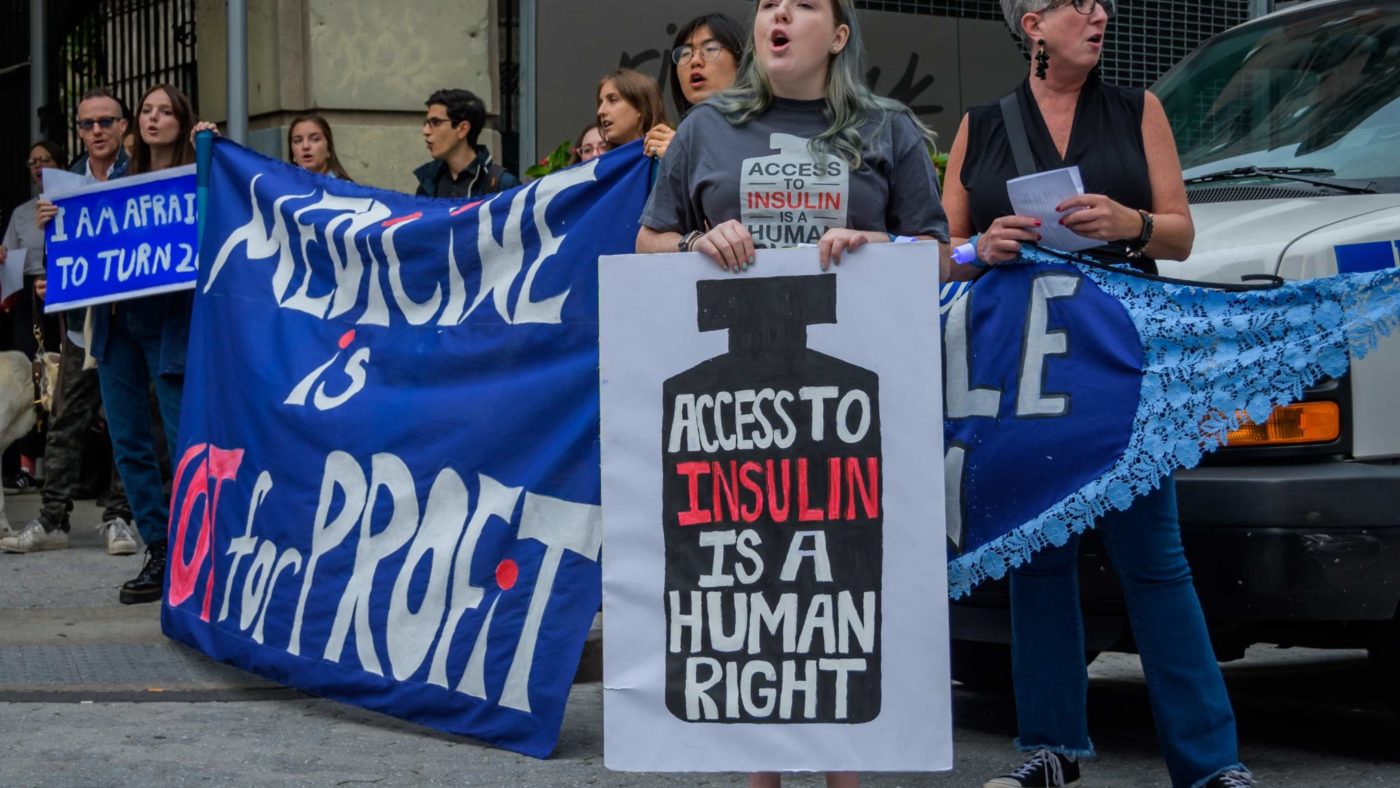From this morning’s Guardian we learn that diabetic patients across the Pond are dying due to the sky-high price of insulin, which comes in at about $300 for a month’s supply. Unlike much that the Guardian publishes, this does have the merit of being true – but beyond the raw facts, the reason for this doleful situation is worth investigating.
Opponents of a market in healthcare often cite the US experience as evidence of the iniquities of a capitalistic system. After all, these drugs are much cheaper – or free – in our nationalised health service. The solution to America’s health crisis, the argument goes, is to remove the capitalism and all will be well.
But it’s altogether more complicated than simply markets vs state provision. The actual cause of the problem is idiot regulation. That is, it’s the rules set by the US government that let drug companies charge patients through the nose. So, change the regulation and the problem will be solved – the arrival of that bright new dawn of true socialism isn’t the cure, a properly free market is.
In any proposal for regulation, or even correction of a market failure, it’s necessary to work out what the details of the problem are. Generally there’s no desire for snake oil salesmen, so a system of testing that drugs actually work is certainly worth having.
There’s also a public goods problem. The first pill can cost $1 to $2 billion to get through that process. The second can be made for $1 usually enough. If anyone is allowed to make that second pill as they wish then the $2 billion put in to make the first won’t happen. Thus the drugs industry is festooned with patents to provide a time-limited ability to profit from investing in the creation of new pharmaceuticals.
The crucial part is that the patents are actually time-limited and at the end of the 20 year exclusivity the market is opened to generics. A free market arrives after restrictions to deal with the public goods problem. Perhaps not a perfect system but this is a second best world.
Why then is insulin, which has been around for over a century, so expensive in the US compared to Europe?
It’s not because drug prices are regulated over here. There are different sets of such regulation in different countries and even none in some. Yet insulin is cheaper everywhere that doesn’t use the US regulatory system.
Insulin in the US is regulated as if it were a drug. Therefore a generic – that is the out-of-patent copy – must demonstrate that is is the same at the molecular level. This is not possible as insulin isn’t really a drug, but a biological product, so newer versions might work in exactly the same way but they are not going to be identical, hence the regulatory snafu which leads to high prices.
So, while patent rights are a necessity to incentivise companies to make new drugs, in the US they have been made too strong, preventing the timely introduction of competition. The answer is to weaken the rights by using the correct method of regulation, not the wrong one.
Fortunately the Federal Drug Administration has recognised this, the change in regulation is scheduled for next year perhaps and the year after that should see competition bringing prices down.
There’s a larger and more important point here. Critics of capitalism often refer to “market failure” – and that certainly does exist, with the public goods problem outlined above a very good example. At the same time what is called market failure is often nothing of the sort, rather it is the failure to have a proper market in the first place.
As we know only too well, government, bureaucrats and politicians can get things wrong – and those errors in setting the rules of the game kill people just as much as any other imperfections in the systems we live by.
CapX depends on the generosity of its readers. If you value what we do, please consider making a donation.


